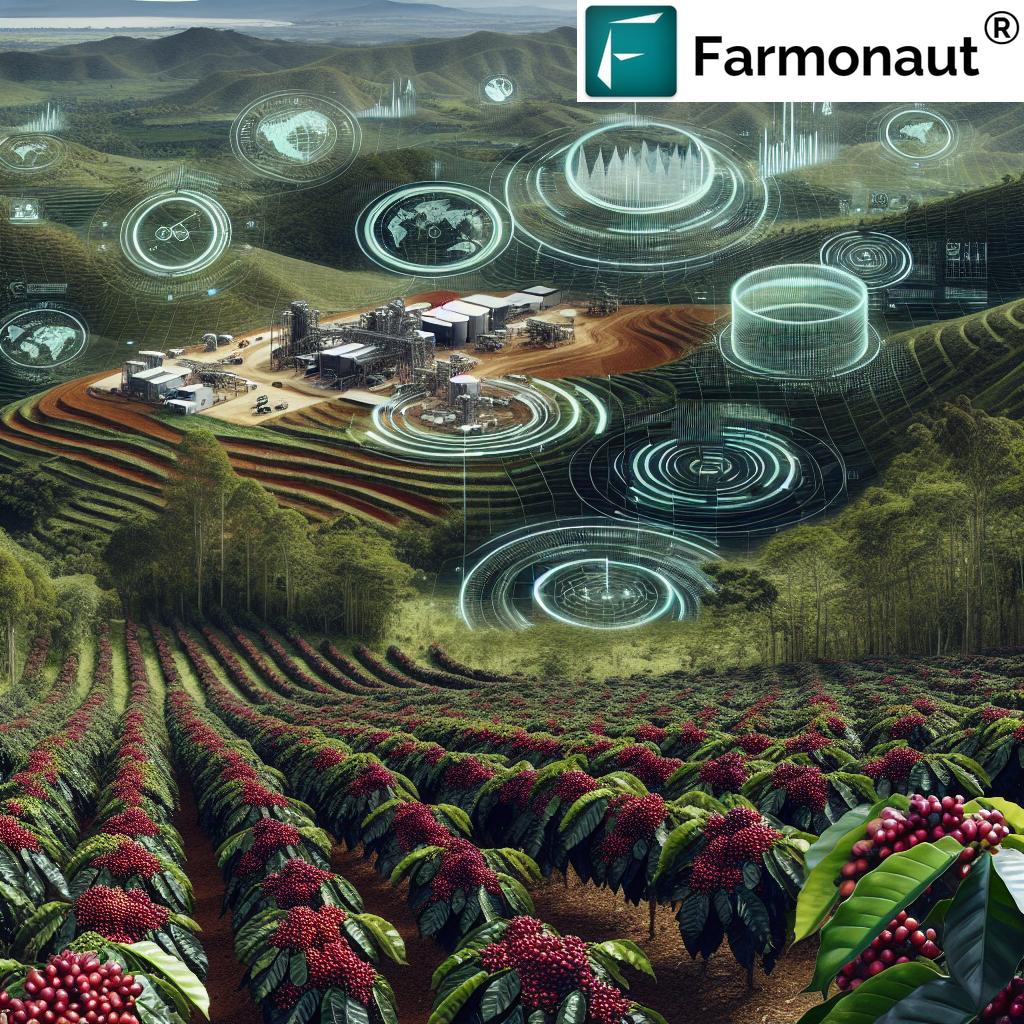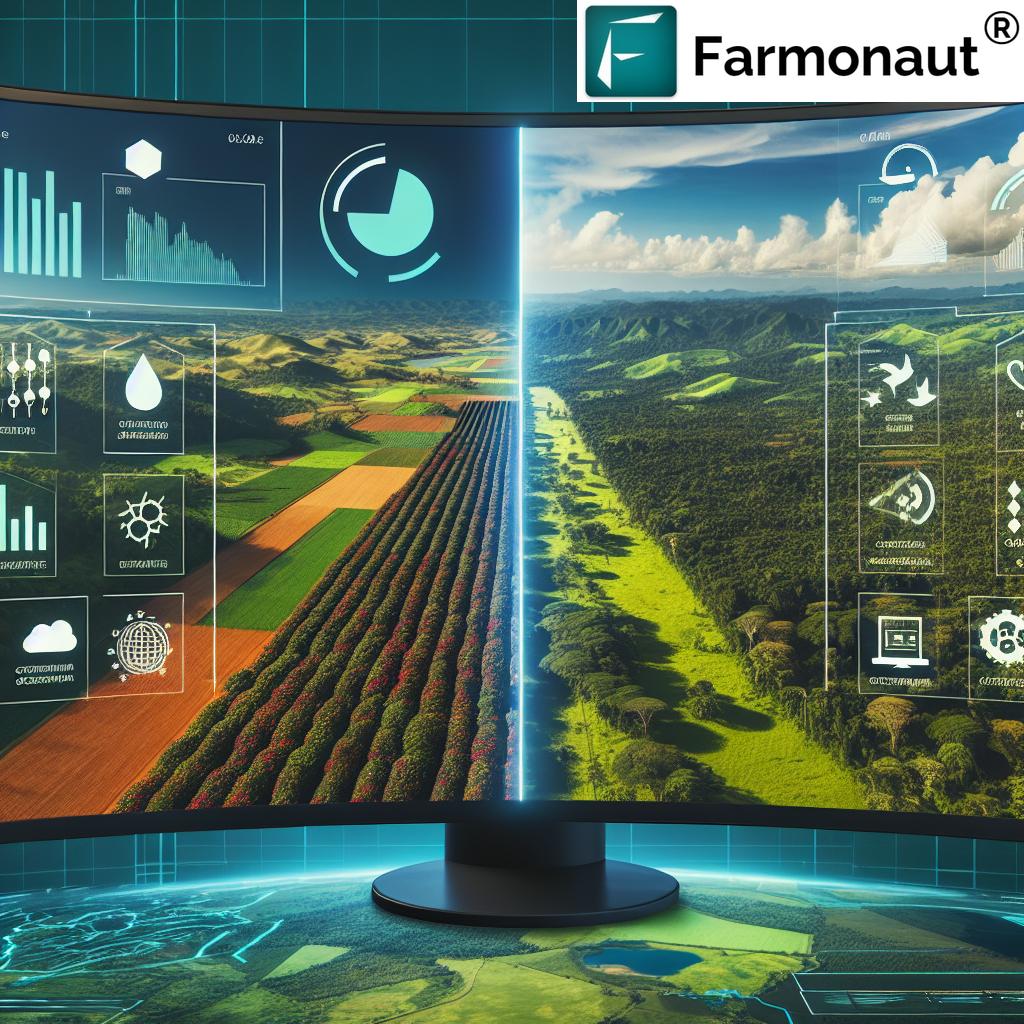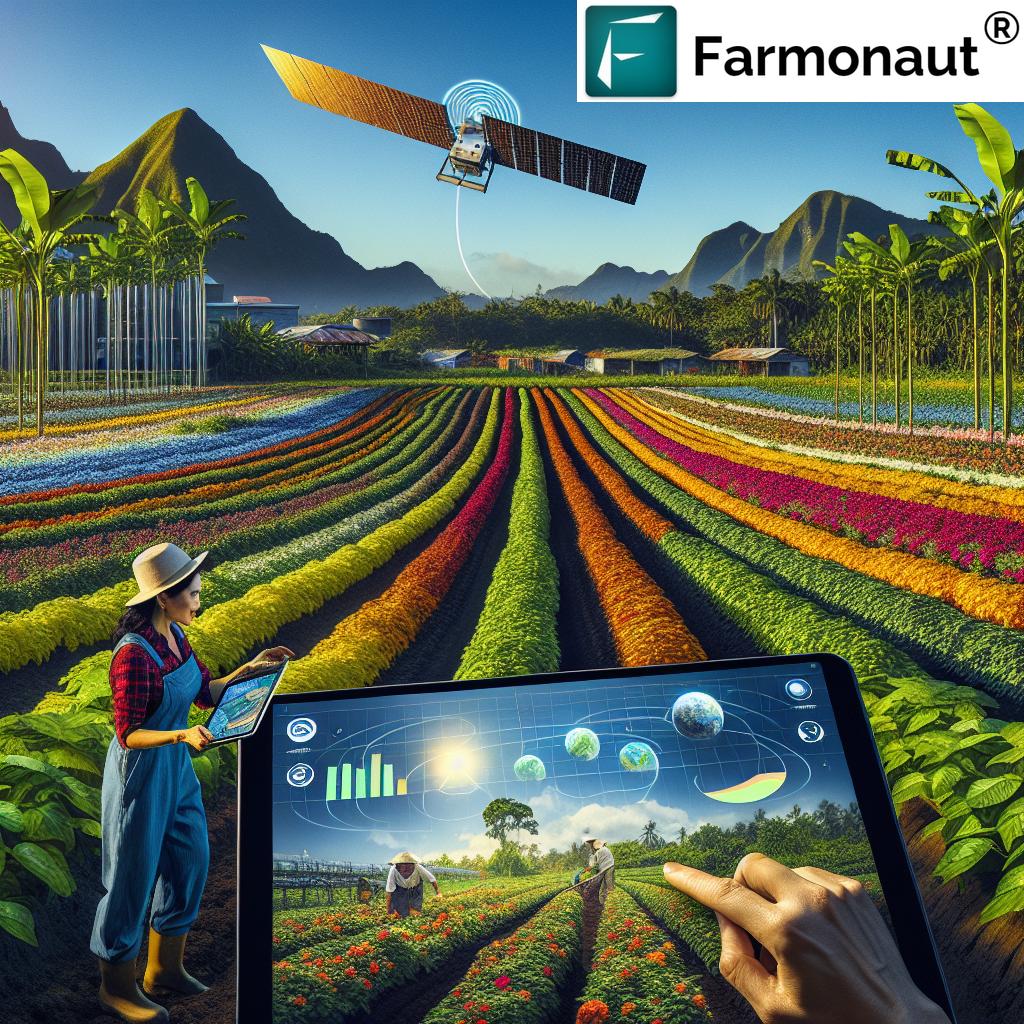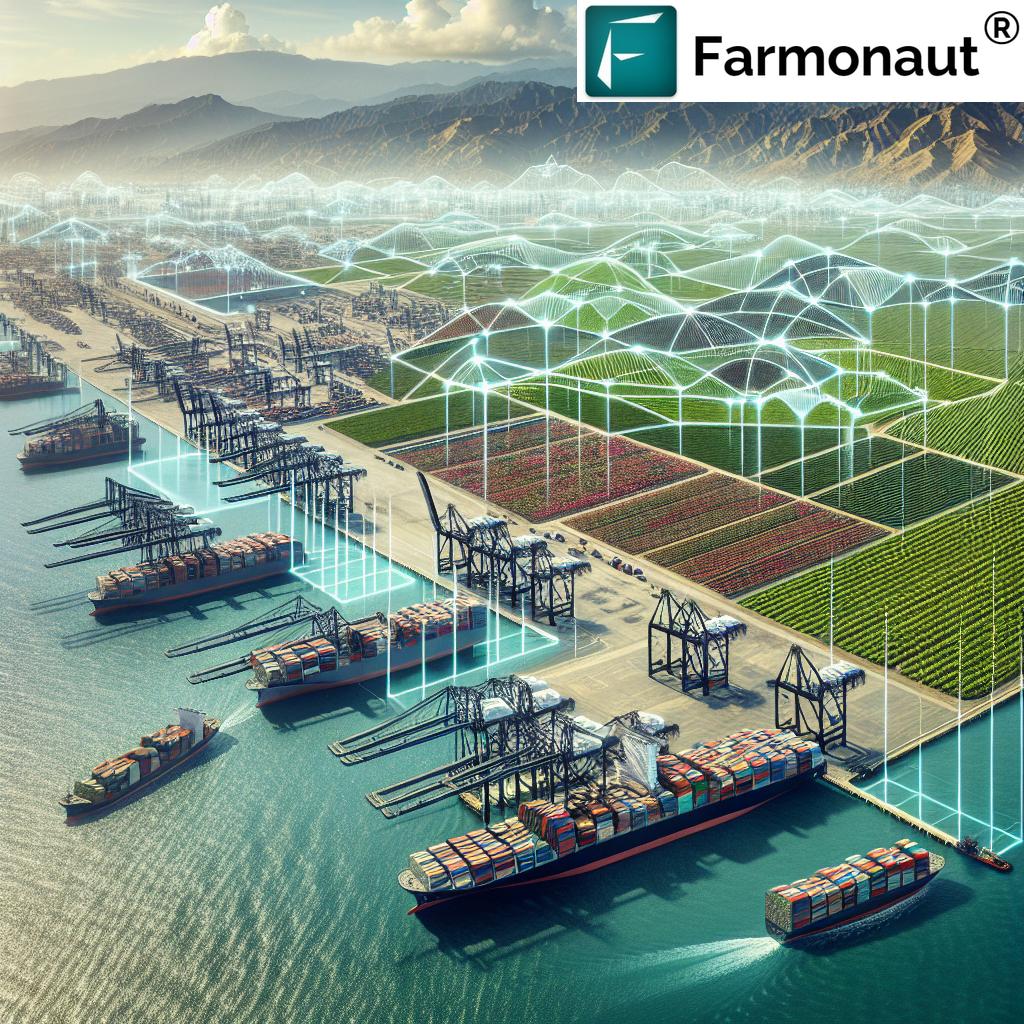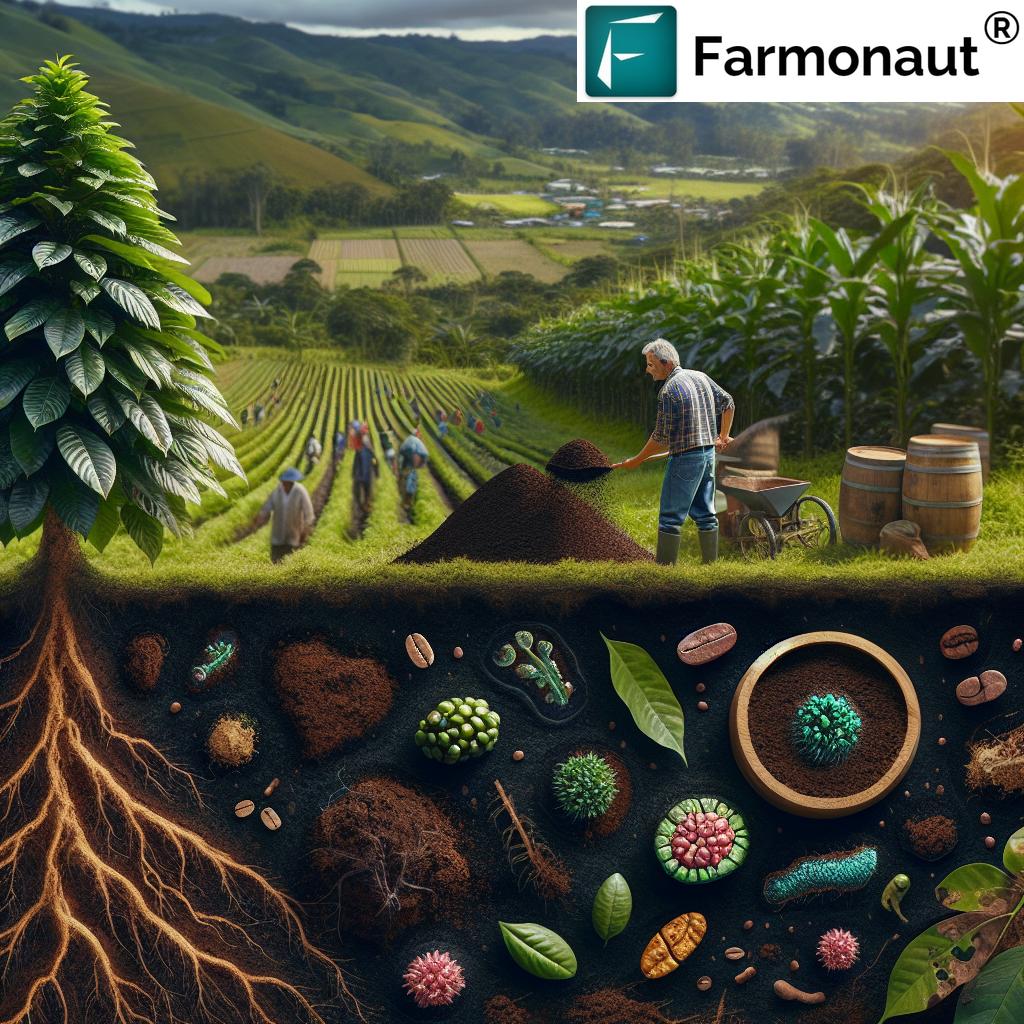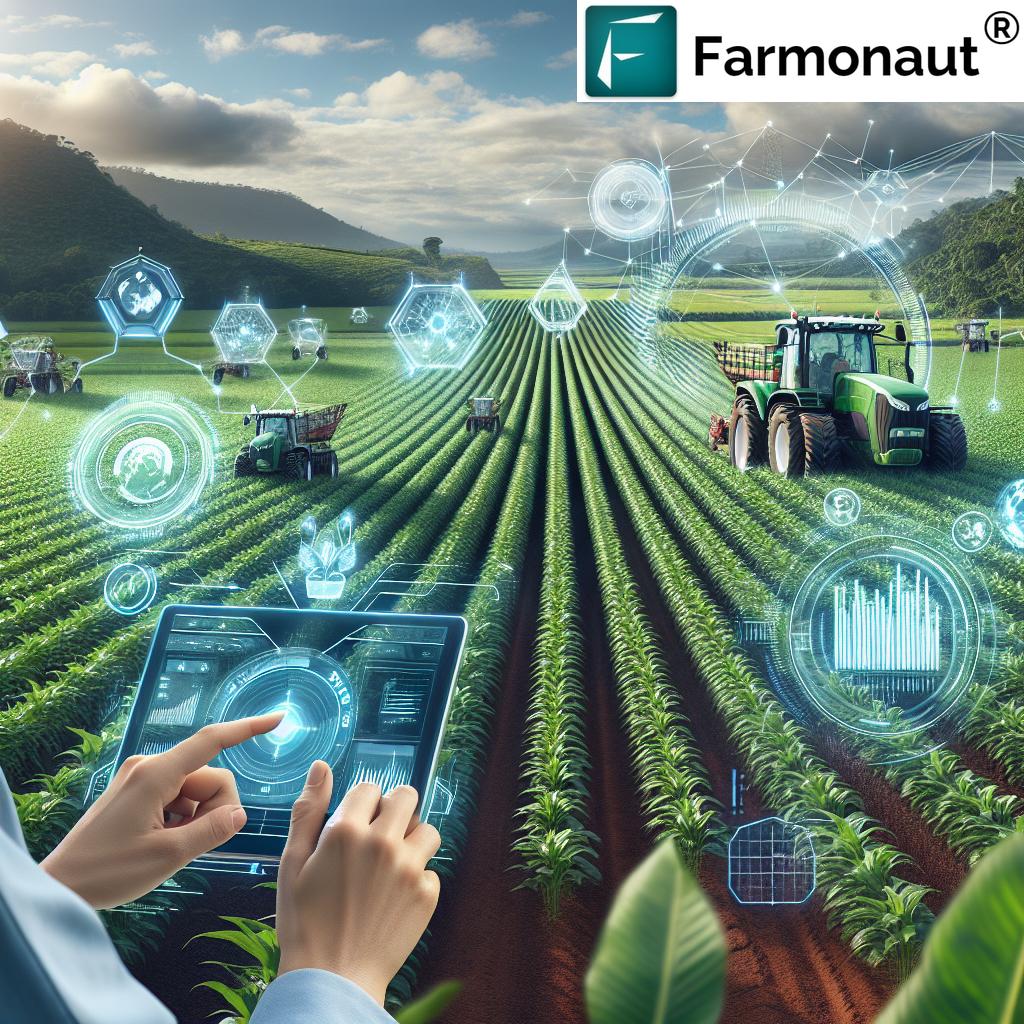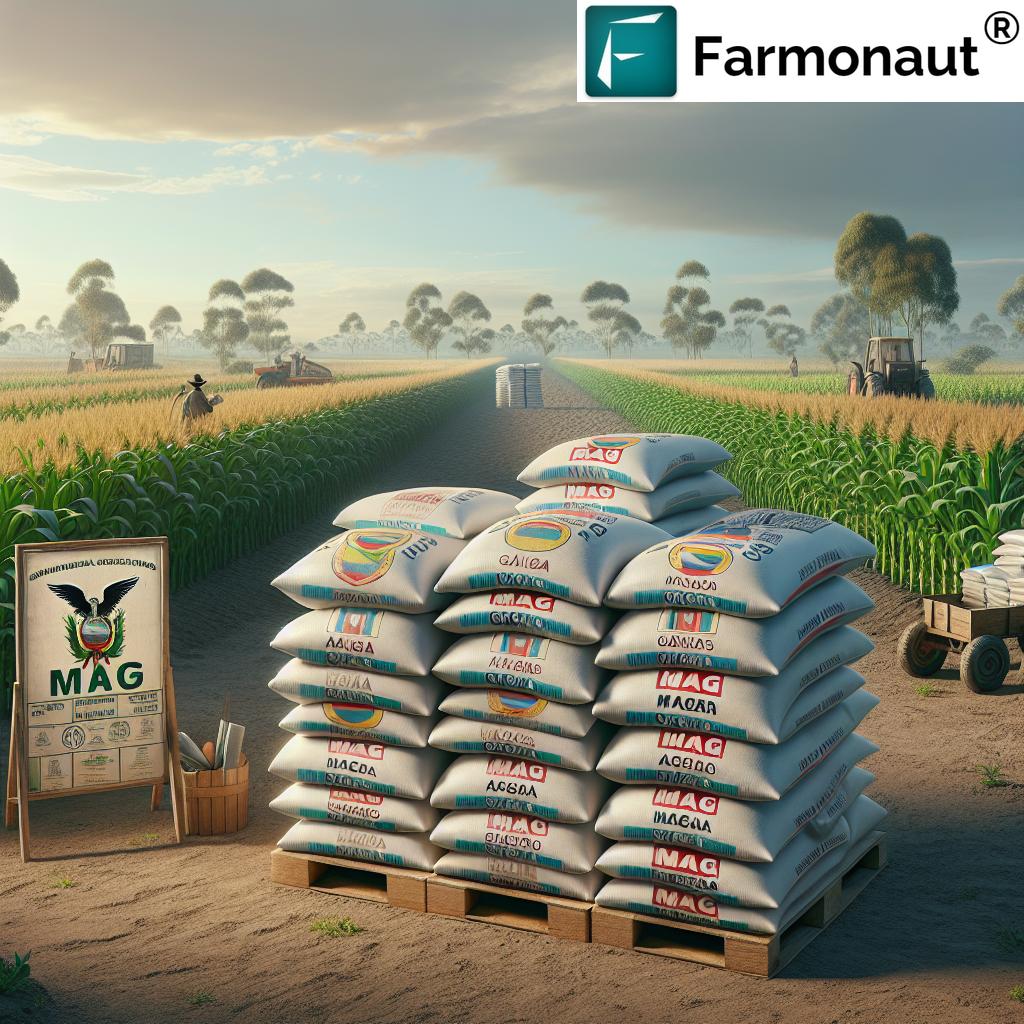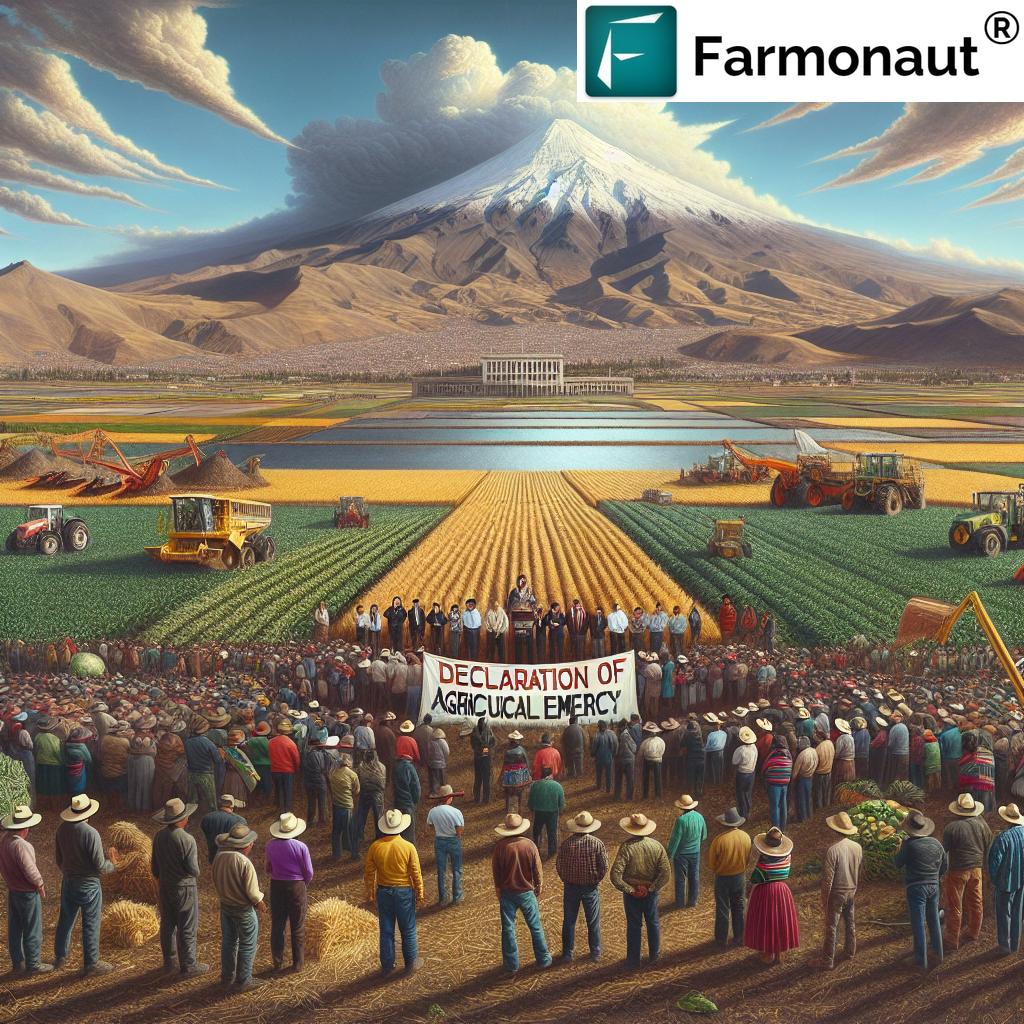Revolutionizing Brazilian Agriculture: How AI and Agritech Startups Are Transforming Farming in 2023
“Brazil leads Latin America in AI adoption, with agritech startups attracting significant investments in 2023.”
In recent years, we’ve witnessed a remarkable transformation in Brazil’s agricultural landscape. As we delve into the heart of this agricultural revolution, we’ll explore how artificial intelligence (AI) and innovative agritech startups are reshaping the future of farming in the world’s fifth-largest country. From the bustling streets of São Paulo to the vast expanses of the Cerrado, a new era of smart, sustainable agriculture is taking root, promising to revolutionize how we grow, manage, and distribute food.
The Rise of Agritech in Brazil’s Startup Ecosystem
While Brazil’s startup scene has long been dominated by fintech innovations, a new player has entered the arena: agritech. As we navigate through 2023, we’re seeing a significant shift in focus towards agricultural management solutions that leverage cutting-edge technologies to address the unique challenges faced by Brazilian farmers.
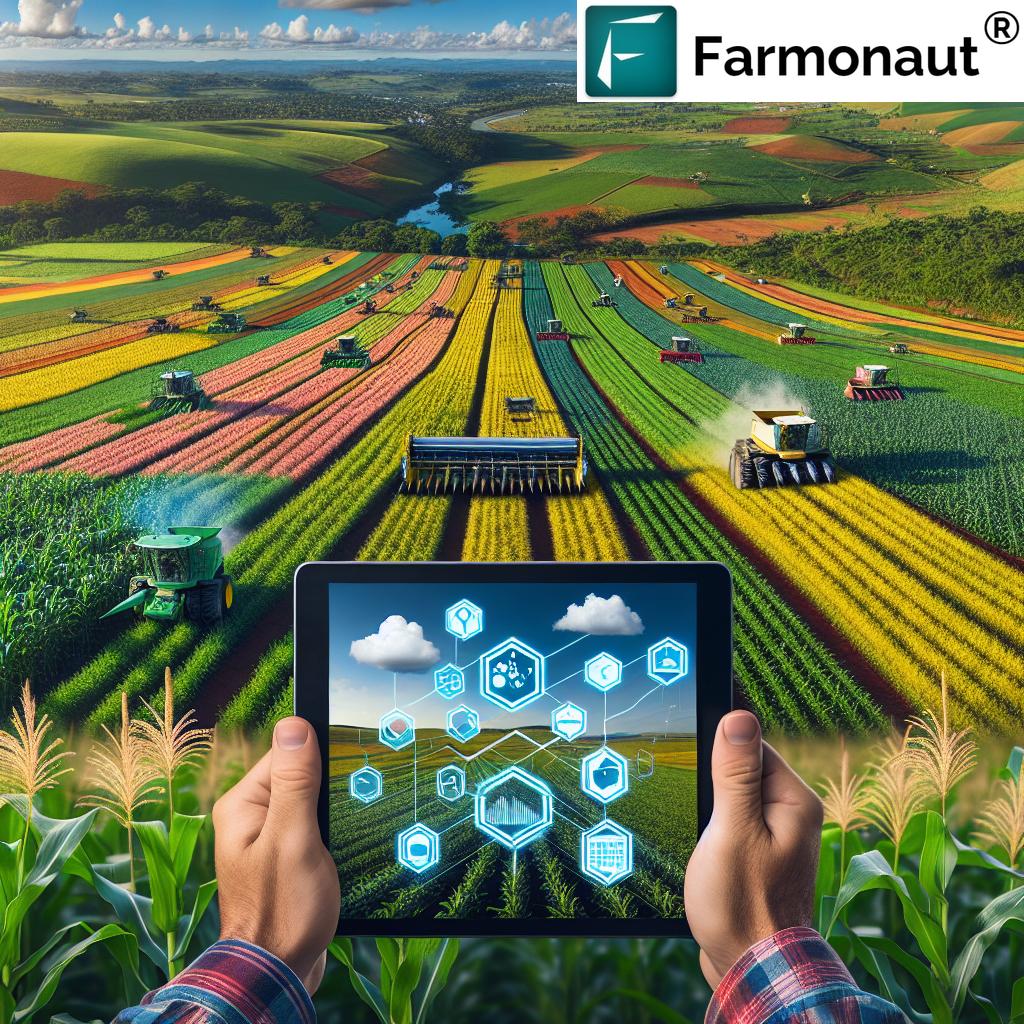
This shift is not just a passing trend; it’s a fundamental change in how we approach farming in Brazil. Agritech startups are attracting substantial investments, with over $110 million pouring into AI-focused agricultural ventures in the first quarter of 2023 alone. This influx of capital is fueling innovations that promise to transform traditional farming practices, making them more efficient, sustainable, and productive.
AI-Powered Solutions Tailored for Brazilian Agriculture
At the heart of this agricultural revolution are AI-powered solutions designed to address the specific needs of Brazilian farmers. These technologies are not mere adaptations of foreign systems; they are homegrown innovations that understand the nuances of Brazilian agriculture.
- Precision Farming Technology: AI algorithms analyze satellite imagery and sensor data to provide farmers with real-time insights into crop health, soil conditions, and optimal resource allocation.
- Crop Yield Prediction: Advanced machine learning models use historical data, weather patterns, and current crop conditions to forecast yields with unprecedented accuracy.
- Smart Irrigation Systems: AI-driven irrigation solutions optimize water usage, crucial in a country with diverse climatic zones.
- Pest and Disease Management: Early detection systems powered by AI help farmers identify and address potential threats before they become widespread problems.
These agricultural AI solutions are not just improving efficiency; they’re revolutionizing how we think about farming in Brazil. By harnessing the power of data and machine learning, we’re enabling farmers to make more informed decisions, reduce waste, and increase productivity.
The Impact of Agritech Innovations on Brazilian Agriculture
To better understand the transformative power of these innovations, let’s look at a comprehensive overview of some key agritech advancements and their impact on Brazilian agriculture:
| Innovation Type | Startup/Company Name | Key Features | Estimated Impact on Agricultural Productivity | Primary Crop/Sector Benefited |
|---|---|---|---|---|
| AI-powered crop monitoring | AgroIntelli | Real-time crop health analysis, pest detection | 15-20% increase | Soybeans, Corn |
| Precision farming tools | Solinftec | IoT sensors, weather forecasting, farm management platform | 25% increase | Sugarcane, Grains |
| AI-based funding solutions | Traive | Credit risk assessment, automated loan processing | 30% increase in access to funding | All sectors |
| Drone-based crop analysis | Horus Aeronaves | High-resolution imagery, AI-powered analysis | 10-15% increase | Coffee, Citrus |
| Blockchain for supply chain | BovControl | Traceability, quality control, market intelligence | 20% increase in efficiency | Livestock |
This table illustrates the diverse range of agritech innovations currently transforming Brazilian agriculture. From AI-powered crop monitoring to blockchain-based supply chain solutions, these technologies are addressing critical challenges across various agricultural sectors.
Sustainable Agriculture Practices Enabled by AI
One of the most promising aspects of Brazil’s agritech revolution is its potential to promote sustainable agriculture practices. By leveraging AI and precision farming technologies, we’re seeing a shift towards more environmentally friendly farming methods:
- Reduced Water Usage: Smart irrigation systems optimize water consumption, crucial in water-stressed regions.
- Minimized Chemical Inputs: Precision application of fertilizers and pesticides reduces environmental impact and costs.
- Soil Conservation: AI-driven analysis helps maintain soil health, preventing degradation and erosion.
- Carbon Footprint Reduction: Improved efficiency in farm operations leads to lower greenhouse gas emissions.
These sustainable practices are not just good for the environment; they’re also improving the bottom line for farmers across Brazil. By reducing input costs and improving yields, sustainable agriculture enabled by AI is proving to be a win-win solution for both farmers and the planet.
Crop Monitoring Systems: The Eyes in the Sky
One of the most revolutionary aspects of Brazil’s agritech boom is the widespread adoption of advanced crop monitoring systems. These systems, often powered by satellite imagery and AI algorithms, are providing farmers with unprecedented insights into their fields.
“Brazilian agtech innovations include AI-powered crop yield prediction algorithms and smart funding solutions for farmers.”
Companies like Farmonaut are at the forefront of this revolution, offering cutting-edge satellite-based farm management solutions. These platforms provide real-time data on crop health, soil moisture levels, and other critical metrics, enabling farmers to make informed decisions about irrigation, fertilizer usage, and pest management.

The impact of these crop monitoring systems on Brazilian agriculture cannot be overstated. By providing farmers with a bird’s-eye view of their fields, we’re enabling more precise and efficient farming practices. This level of insight was previously unimaginable for many Brazilian farmers, especially those managing large-scale operations in remote areas.
AI-Driven Agricultural Funding Solutions
Another area where AI is making significant inroads in Brazilian agriculture is in financial services. Traditional lending models often struggle to accurately assess the risk associated with agricultural loans, leading to limited access to credit for many farmers. However, AI-powered platforms are changing this landscape.
Companies like Traive are leveraging AI algorithms to analyze a wide range of data points, including satellite imagery, weather patterns, and historical yield data, to assess creditworthiness more accurately. This approach is not only increasing access to funding for farmers but also reducing risk for lenders.
The implications of these AI-driven funding solutions are profound:
- Increased access to capital for small and medium-sized farms
- More competitive interest rates based on data-driven risk assessment
- Faster loan approval processes, crucial during planting seasons
- Better financial planning tools for farmers, powered by AI insights
By democratizing access to capital, these AI-powered financial solutions are helping to level the playing field in Brazilian agriculture, allowing smaller operations to compete more effectively with larger agribusinesses.
The Role of Blockchain in Agricultural Supply Chains
As we delve deeper into the technological transformation of Brazilian agriculture, we can’t overlook the growing importance of blockchain technology. While often associated with cryptocurrencies, blockchain is finding innovative applications in agricultural supply chains.
In Brazil, blockchain is being used to enhance traceability and transparency in the agricultural sector. This technology allows for the creation of an immutable record of a product’s journey from farm to table, providing valuable information to consumers, retailers, and regulators alike.
Key benefits of blockchain in Brazilian agriculture include:
- Enhanced Food Safety: Rapid traceability in case of contamination or recalls
- Reduced Fraud: Authentication of organic and fair-trade certifications
- Improved Efficiency: Streamlined logistics and reduced paperwork
- Consumer Trust: Greater transparency about food origins and production methods
As consumer demand for transparency in food production continues to grow, we expect to see even wider adoption of blockchain technology across Brazil’s agricultural sector.
Smart Farming Techniques: Precision Agriculture in Action
The concept of precision agriculture is not new, but recent advancements in AI and IoT technologies are taking it to new heights in Brazil. Smart farming techniques are allowing farmers to micromanage their fields with unprecedented accuracy, leading to optimized resource use and increased yields.
Some key smart farming techniques gaining traction in Brazil include:
- Variable Rate Technology (VRT): Adjusts the application of inputs like fertilizers and seeds based on specific field conditions
- Automated Machinery: AI-guided tractors and harvesters that can operate with minimal human intervention
- Sensor Networks: Collect real-time data on soil moisture, temperature, and other critical factors
- Predictive Analytics: Use historical and real-time data to forecast optimal planting and harvesting times
These smart farming techniques are particularly valuable in Brazil’s diverse agricultural landscape, where conditions can vary significantly even within a single farm. By enabling more precise management of resources, we’re seeing improvements in both productivity and sustainability.
The Future of Brazilian Agtech: Challenges and Opportunities
As we look to the future of agritech in Brazil, we see both significant opportunities and challenges ahead. The potential for growth is immense, with Brazil poised to become a global leader in agricultural innovation. However, realizing this potential will require overcoming several hurdles:
- Infrastructure Challenges: Improving rural connectivity to fully leverage IoT and AI technologies
- Education and Training: Ensuring farmers have the skills to adopt and utilize new technologies effectively
- Regulatory Framework: Developing policies that encourage innovation while protecting data privacy and security
- Investment: Continuing to attract capital to fund research and development in agritech
Despite these challenges, the future looks bright for Brazilian agtech. As the sector continues to grow and evolve, we expect to see:
- Increased collaboration between startups, established agribusinesses, and research institutions
- Greater integration of AI and machine learning across all aspects of agriculture
- The emergence of new business models that leverage data and technology to create value
- A continued focus on sustainability and environmental stewardship
As we move forward, the key to success will be maintaining the innovative spirit that has driven Brazil’s agtech revolution while addressing the unique challenges and opportunities presented by the country’s agricultural sector.
Conclusion: A New Era for Brazilian Agriculture
As we’ve explored throughout this article, the convergence of AI, agritech startups, and innovative farming practices is ushering in a new era for Brazilian agriculture. From AI-powered crop monitoring systems to blockchain-based supply chain solutions, technology is transforming every aspect of farming in South America’s largest country.
The implications of this transformation extend far beyond Brazil’s borders. As one of the world’s largest agricultural producers, innovations in Brazilian farming have the potential to impact global food security and sustainability. By embracing these technological advancements, Brazil is not only enhancing its own agricultural productivity but also setting a precedent for sustainable, technology-driven farming practices worldwide.
As we look to the future, it’s clear that the synergy between AI, agritech, and traditional farming knowledge will continue to drive innovation in Brazilian agriculture. This revolution is not just about adopting new technologies; it’s about reimagining the very nature of farming for the 21st century and beyond.
For those interested in staying at the forefront of this agricultural revolution, platforms like Farmonaut offer cutting-edge tools and insights. Whether you’re a farmer looking to optimize your operations, an investor seeking opportunities in agritech, or simply someone passionate about the future of food production, there’s never been a more exciting time to engage with Brazilian agriculture.
As we conclude, it’s worth reflecting on the remarkable journey that has brought Brazilian agriculture to this point. From the early days of manual farming to today’s AI-driven precision agriculture, the sector has continually evolved and adapted. Now, as we stand on the brink of a new technological frontier, one thing is clear: the future of Brazilian agriculture is bright, innovative, and full of potential.
FAQ Section
Q1: How is AI transforming Brazilian agriculture?
A1: AI is revolutionizing Brazilian agriculture by enabling precision farming, optimizing resource use, predicting crop yields, and improving decision-making through data analysis. It’s enhancing efficiency, sustainability, and productivity across the sector.
Q2: What are some key agritech innovations in Brazil?
A2: Key innovations include AI-powered crop monitoring systems, precision farming tools, blockchain for supply chain management, drone-based crop analysis, and AI-driven agricultural funding solutions.
Q3: How are agritech startups impacting small farmers in Brazil?
A3: Agritech startups are democratizing access to advanced farming technologies, providing small farmers with affordable solutions for crop monitoring, weather forecasting, and financial services, helping them compete more effectively with larger operations.
Q4: What role does sustainability play in Brazil’s agritech revolution?
A4: Sustainability is a core focus of Brazil’s agritech innovations, with many solutions aimed at reducing water usage, minimizing chemical inputs, conserving soil health, and lowering the overall environmental impact of farming practices.
Q5: How is blockchain technology being used in Brazilian agriculture?
A5: Blockchain is enhancing traceability and transparency in agricultural supply chains, improving food safety, reducing fraud, and building consumer trust by providing verifiable information about food origins and production methods.
For more information on agricultural technology solutions, visit:
API access: Farmonaut API
API Developer Documentation: Farmonaut API Docs










